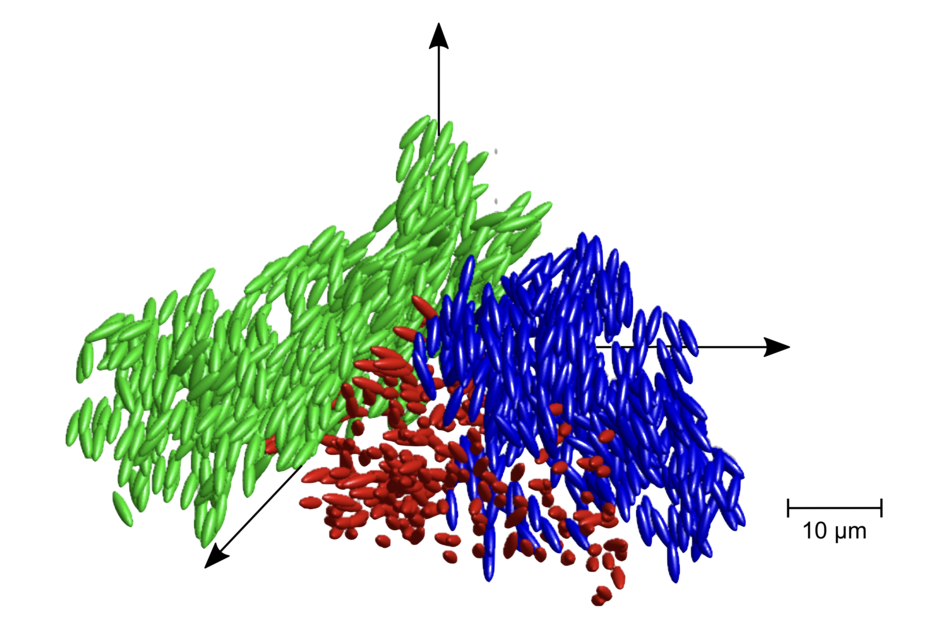For students

Image credit: Research groups of Professor Andreas Zumbusch and Professor Matthias Fuchs.
‘Soft Matter’ comprises many important materials in every day use, such as colloidal dispersions, gels, emulsions, liquid crystals and polymeric materials. Proteins, cells, and other constituents of living organisms have many properties in common. Soft matter systems are characterized by collective phenomena which occur at very low frequencies. Elastic deformations require forces orders of magnitude smaller than in conventional crystalline solids, and fluctuations play a dominant role. Soft matter thus is a testing ground for advancing ‘Statistical Physics’, and provides many model systems for the investigation of fundamental topics.
In our group, we develop first principles approaches in the frame of Statistical Physics and the classical ‘Theory of Many Body Systems’, in order to understand structural and transport properties of novel soft matter systems, especially far from thermal equilibrium. Presently, we investigate meta-stable, glassy states in colloidal dispersions and polymer melts, and their rheological properties (viz. flow properties, and/or behaviour under large deformations). We find, for example, universal scaling laws at non-equilibrium transitions between solid and liquid states, which rationalize the technologically important behaviour of dense dispersions, clays, ceramics, and amorphous plastics.
If you would like to know more about what 'Soft Matter' is, you can take a look at our page 'Research' or at the webpage of the 'department of Physics'.
Every semester we are offering different lectures and seminars. The page 'Teaching' will give you an overview of the range of recurrent topics. You can contact us if you are interested in a specific lecture or seminar to be offered.
For some lectures we also provide lecture notes. However, to access them, you have to sign in with your university e-mail account.
If you are interested in writing your Bachelor or Master thesis within our group, you can take a look at our student's projects. Here you can find a list with different topics classified by degree. Master students can also perform a 'Projektpraktikum' in our group replacing one advance laboratory unit.
We would also like to point out that Bachelor students have the possibility to write their thesis abroad, e.g. in Soft Matter, Machine Learning, Biophysics and alike topics. To get more information please follow the link 'Bachelor thesis abroad'.
To get to know what we are currently working on, we invite you to simply browse through our research projects.
